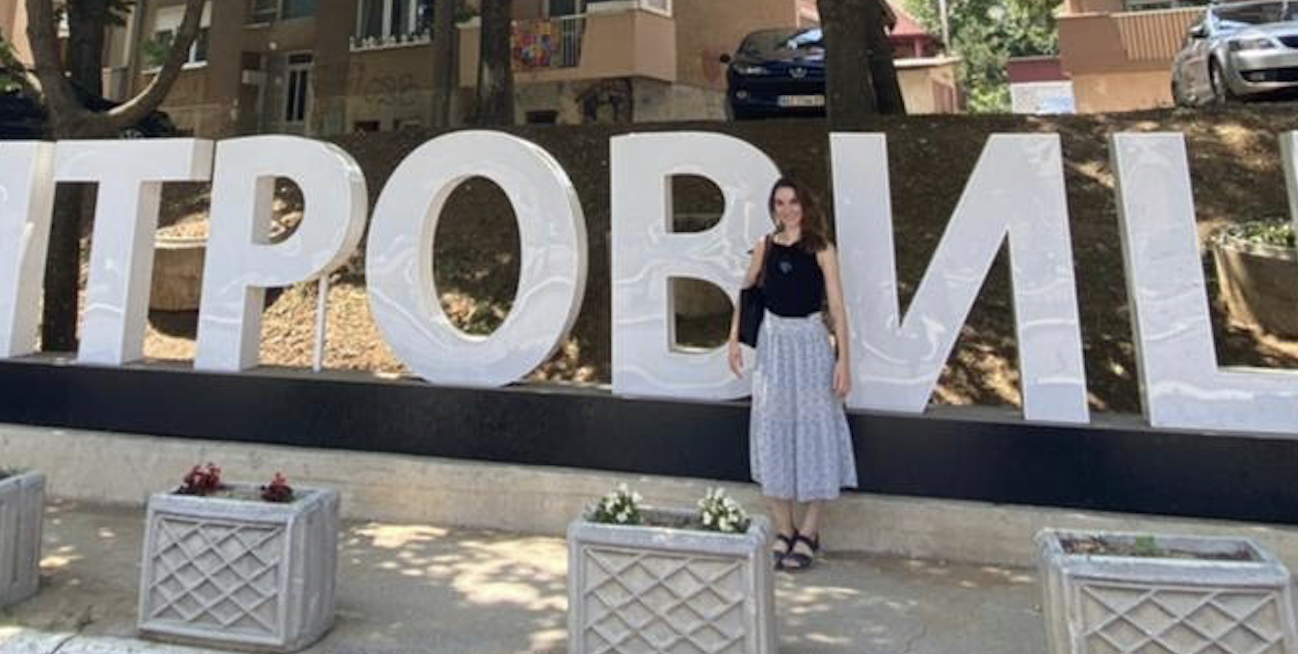The “Berlin Wall” of Kosovo: Mitrovicë North and South (Pt. 2)

In my previous post, I talked about my recent daytrip to the ethnically divided city of Mitrovicë in north Kosovo. Here, I discuss my takeaways and questions that came up as a result of the experience.
My trip to Mitrovicë was a thought-provoking one, and it led me to think more about Kosovo’s status as a post-conflict society. On a fundamental level, is Kosovo really a post-conflict state when there are persistent ethnic divisions (especially that manifest in different governing bodies)? Mitrovicë is not the only ethnic enclave of Serbian Kosovars in Kosovo; there are many others and ethnic tensions can run high, even if those towns don’t have the same divided structure of north and south Mitrovicë.
I also got to thinking about civil society organizations and international aid efforts to develop Kosovo: how successful could these organizational efforts be long-term when there are continuing, state-sanctioned (or at least, state-enabled) ethnic conflicts? These conflicts do not always manifest in a violent way; however, as the economic isolation of north Mitrovicë shows, there’s a high human cost to the Albanians’ and the Serbs’ antagonistic attitudes toward one another. As a lawyer-in-training, I suspect the answer to these questions lies somewhere in the ambiguity, in which post-conflict rebuilding is possible in some areas (e.g., economic development) despite ongoing challenges in other areas.
One Balkan-focused reporting site I follow (Balkan Transitional Justice) points to the broader complications present within post-conflict societies. In response to Serbia’s genocide of thousands of ethnic Albanians during the 1999 war, the Prime Minister of the Kosovo Assembly recently revived calls for Kosovo to file a genocide lawsuit against Serbia via the International Criminal Tribunal for the Former Yugoslavia (ICTY). As you might imagine, this is a contentious proposal (and is one that is frequently discussed in Kosovo politics). While some Albanian Kosovars see a genocide lawsuit as a critical component in achieving justice against Serbian forces who had a hand in perpetrating war crimes, some ethnic Serbs and Balkans experts point out there is little direct evidence from which the Kosovar government could mount a successful lawsuit. This may be due in part to the high evidentiary standards of the International Court of Justice, as noted in the above-linked article (e.g., “Past cases . . . have also demonstrated that the threshold for determining that the UN’s Convention of the Prevention and Punishment of the Crime of Genocide has been breached is high.”).
I mention this issue because it shows that Kosovo, Serbia, and the Balkan region continue to grapple with lingering questions of post-conflict justice, even as the countries work to build their governments and address other serious social problems like environmental pollution and gender and racial inequalities, among others. Recent and ongoing discoveries of human remains (as a result of the genocide) complicate the prospects for reconciliation between the countries, and trigger other politically sensitive issues, such as efforts to find wartime missing persons, institute reparations, and direct judicial resources toward prosecution of war crimes. As previous war tribunals show us, these problems are unfortunately not unique to Kosovo, and can take years to resolve.
Learning about these issues can feel overwhelming and make you see Kosovo’s broader situation as hopeless. That said, I do think there are bright spots that I’ve come to see in my short time here. It’s been inspiring to meet so many people (like my CLARD colleagues) who are steadfastly dedicated to Kosovo’s success as an independent nation, and to see that there are many Kosovar civil society organizations interested in creating better living conditions for people here. The strong presence of international organizations, like the European Union Rule of Law Mission in Kosovo (EULEX) and U.S. Agency for International Development (USAID), makes me hopeful that the global community is invested in Kosovo’s progress and that the country is capable of moving forward.
This fall, I’m excited to take Professor Warren’s Post-Conflict Justice and Rule of Law class, and to use the above issues as a jumping-off point for future research. Despite some of the challenges that arose during this internship, I'm really glad I came to Kosovo and learned about these topics firsthand. I'm all the more excited to start 2L with new research ideas and direction for my legal career ahead.
That's all for now! Mirufpashim!